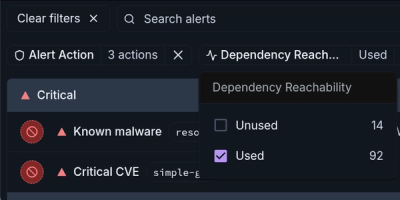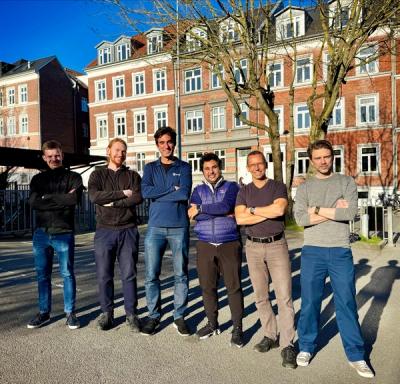
Product
Introducing Historical Analytics – Now in Beta
We’re excited to announce a powerful new capability in Socket: historical data and enhanced analytics.
@wix/be-http-client
Advanced tools
This repository contains the original interface definitions of public Google APIs that support both REST and gRPC protocols. Reading the original interface definitions can provide a better understanding of Google APIs and help you to utilize them more efficiently. You can also use these definitions with open source tools to generate client libraries, documentation, and other artifacts.
The recommended way to build the API client libraries is through Bazel >= 0.23.0.
First, install bazel.
To build all libraries:
bazel build //...
To test all libraries:
bazel test //...
To build one library in all languages:
bazel build //google/example/library/v1/...
To build the Java package for one library:
bazel build //google/example/library/v1:google-cloud-library-v1-java
Bazel packages exist in all the libraries for Java and Go.
API client libraries can be built directly from files in this repo using
Artman. The latest generation status can
be tracked here which currently
has status .
To build the Java package for one library:
artman --config google/example/library/artman_library_example_v1.yaml generate java_gapic
Artman can only build one library in one language at a time.
For more details on all Google APIs and developer tools, see the Google Developers site.
Google APIs are typically deployed as API services that are hosted under different DNS names. One API service may implement multiple APIs and multiple versions of the same API.
Google APIs use Protocol Buffers version 3 (proto3) as their Interface Definition Language (IDL) to define the API interface and the structure of the payload messages. The same interface definition is used for both REST and RPC versions of the API, which can be accessed over different wire protocols.
There are several ways of accessing Google APIs:
JSON over HTTP: You can access all Google APIs directly using JSON over HTTP, using Google API client library or third-party API client libraries.
Protocol Buffers over gRPC: You can access Google APIs published in this repository through GRPC, which is a high-performance binary RPC protocol over HTTP/2. It offers many useful features, including request/response multiplex and full-duplex streaming.
Google Cloud Client Libraries: You can use these libraries to access Google Cloud APIs. They are based on gRPC for better performance and provide idiomatic client surface for better developer experience.
This repo contains copies of Google API definitions and related files. For discussions or to raise issues about Google API client libraries, GRPC or Google Cloud Client Libraries please refer to the repos associated with each area.
This repository uses a directory hierarchy that reflects the Google API product structure. In general, every API has its own root directory, and each major version of the API has its own subdirectory. The proto package names exactly match the directory: this makes it easy to locate the proto definitions and ensures that the generated client libraries have idiomatic namespaces in most programming languages. Alongside the API directories live the configuration files for the GAPIC toolkit.
NOTE: The major version of an API is used to indicate breaking change to the API.
To generate gRPC source code for Google APIs in this repository, you
first need to install both Protocol Buffers and gRPC on your local
machine, then you can run make LANGUAGE=xxx all to generate the
source code. You need to integrated the generated source code into
your application build system.
NOTE: The Makefile is only intended to generate source code for the entire repository. It is not for generating linkable client library for a specific API. Please see other repositories under https://github.com/googleapis for generating linkable client libraries.
It is difficult to generate Go gRPC source code from this repository, since Go has different directory structure. Please use this repository instead.
FAQs
Unknown package
We found that @wix/be-http-client demonstrated a not healthy version release cadence and project activity because the last version was released a year ago. It has 6 open source maintainers collaborating on the project.
Did you know?

Socket for GitHub automatically highlights issues in each pull request and monitors the health of all your open source dependencies. Discover the contents of your packages and block harmful activity before you install or update your dependencies.

Product
We’re excited to announce a powerful new capability in Socket: historical data and enhanced analytics.

Product
Module Reachability filters out unreachable CVEs so you can focus on vulnerabilities that actually matter to your application.

Company News
Socket is bringing best-in-class reachability analysis into the platform — cutting false positives, accelerating triage, and cementing our place as the leader in software supply chain security.